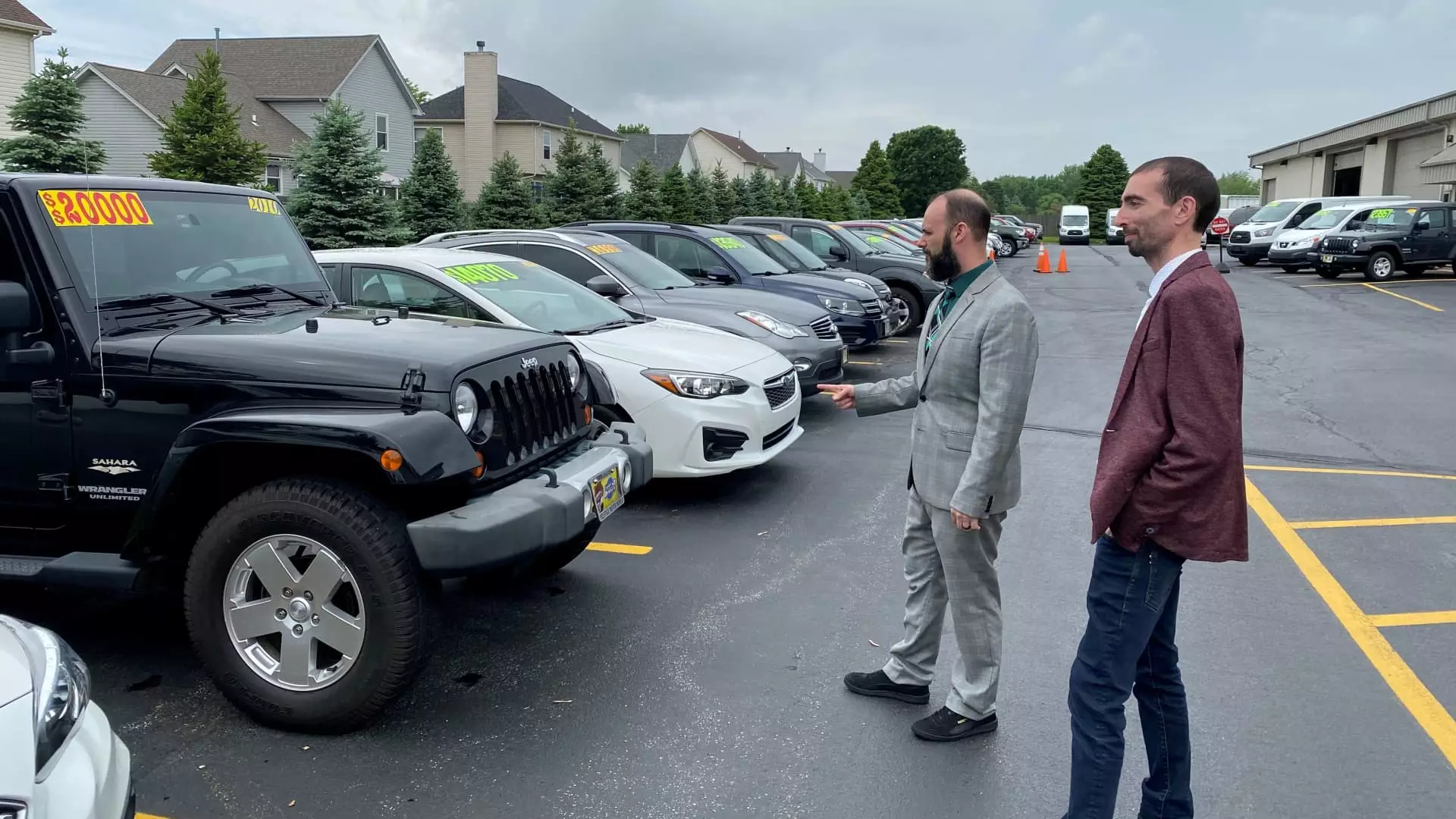As the automotive industry looks ahead to 2025, U.S. car dealers are enveloped in a climate of “renewed optimism.” Analysts at Cox Automotive have noted a significant surge in dealer confidence attributed to various factors, including the political landscape marked by President-elect Donald Trump’s administration. This shifting sentiment comes on the heels of the November election, showcasing how the political scene can dramatically influence market perceptions and consumer behavior.
Cox Automotive’s “Q4 2024 Dealer Sentiment Index” reveals that while overall dealer optimism is on the rise, there is a notable divide when it comes to the sale of electric vehicles (EVs). The survey results highlight an unsettling trend: a majority of dealers expect a decline in EV sales in the upcoming quarter. This skepticism suggests concerns that impending policies from the new administration may not support an already vulnerable business segment. Dealers fear that proposed cuts to federal incentives for electric vehicle purchases could further dampen demand.
The concerns among the dealer community underscore the essential role of governmental support in driving EV adoption. The potential reduction or elimination of the $7,500 tax credit for electric vehicle buyers could significantly impact consumer purchasing decisions. As Jonathan Smoke, Cox’s Chief Economist, pointed out, the diminishing outlook for EVs correlates directly with the precarious status of these incentives. The industry’s long-term transition to electric vehicles is predicated not only on consumer acceptance but also on meaningful support from the federal government.
Despite this negative forecast concerning electric vehicles, the overall market optimism is undeniable. The market outlook index for car dealers has noticeably improved, with a jump to 54 in the fourth quarter compared to 42 in the previous quarter. This increase indicates a growing consensus among dealers that the automotive market may strengthen over the next three months, which is a stark contrast to just a year ago when the index stood at one of its lowest points in history at 41.
However, it’s crucial to temper this broad optimism with the reality that many dealers still perceive current market conditions as weak. With a score of 42, their outlook remains substantially below pre-pandemic levels and historical averages. While the recent political clarity following the election might inspire hope, industry experts caution that this renewed confidence must be balanced against ongoing uncertainties regarding consumer preferences, particularly towards electric vehicles.
Significantly, as the automotive landscape shifts, public perceptions towards car ownership, affordability, and sustainability are evolving as well. Approximately 35% of dealers acknowledged that the political climate affects their businesses less than previously thought, indicating that while the election may have resolved some uncertainties, many challenges persist—especially in relation to product offerings and consumer choices.
Interestingly, the stock performance of publicly traded auto dealers has shown resilience, with shares of major players like AutoNation, Lithia Motors, and Sonic Automotive witnessing substantial gains this year—ranging from 15% to 22%. Group 1 Automotive notably outperformed expectations with an impressive 40% increase. These trends signal a noteworthy recovery in market valuation, bolstered by the strong pricing of both new and used vehicles.
The backdrop of potentially favorable measures, such as tax rebates and lower interest rates, could further support dealer optimism as they venture into the new year. However, the automotive industry remains at a crossroads, faced with the dual challenge of customer adaptation to electric vehicles and the external pressures of economic and political fluctuations.
Ultimately, as dealers prepare for 2025, a comprehensive understanding of market dynamics, consumer sentiment, and potential policy shifts will become essential for navigating the evolving landscape of the automotive industry. The future holds promise, but it also demands vigilance and adaptability to succeed in an increasingly complex environment.


Leave a Reply